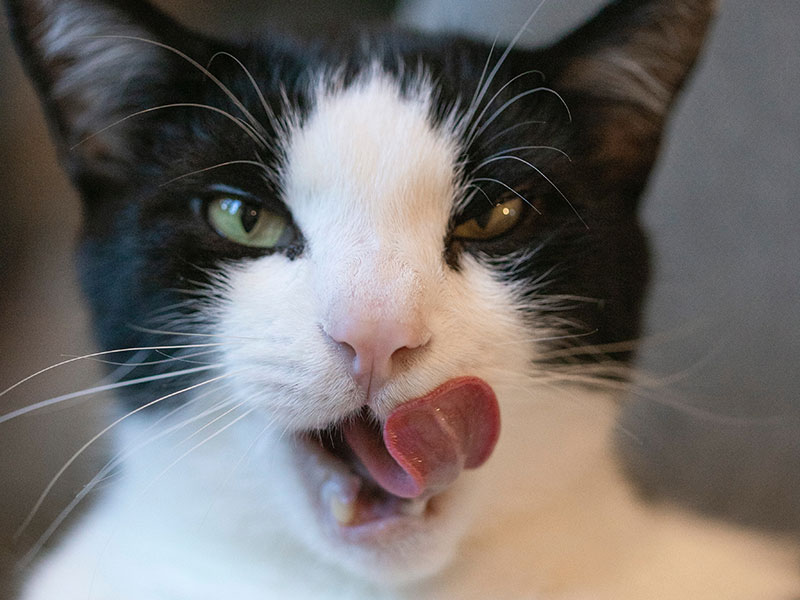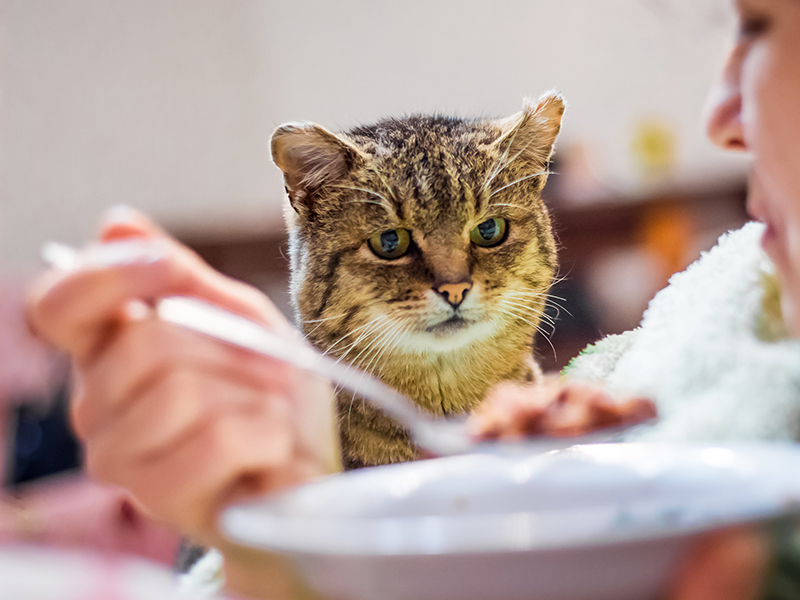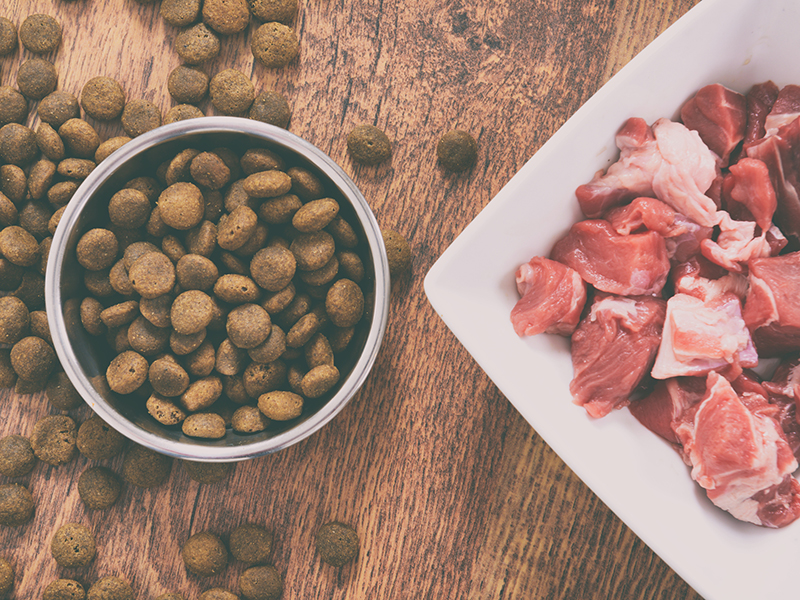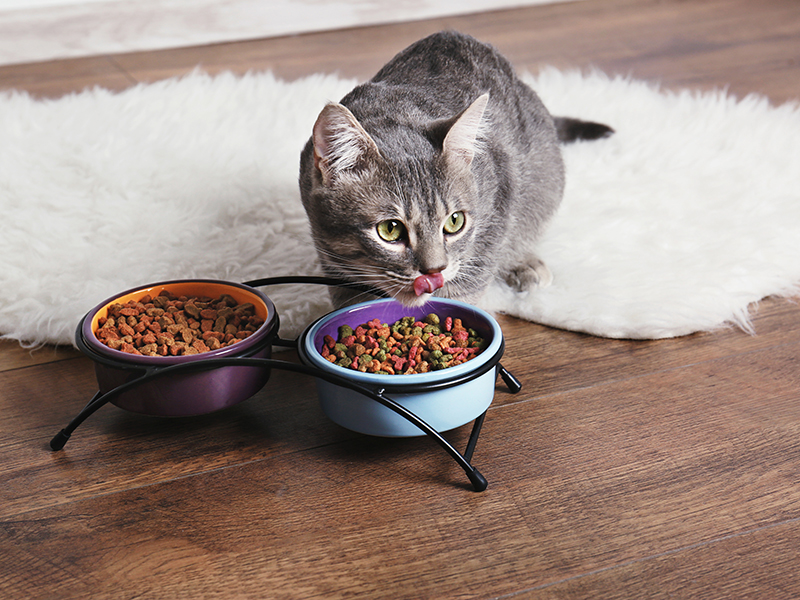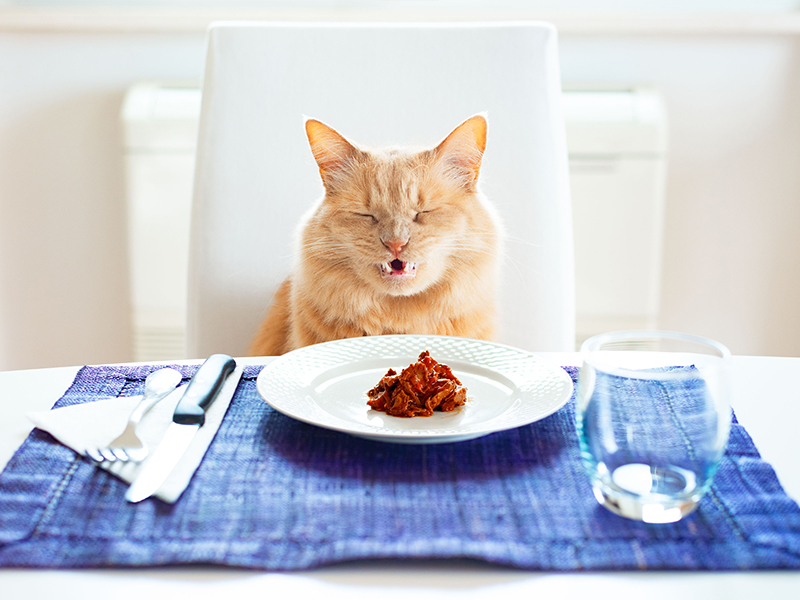It’s horrible to see your kitty in discomfort of any kind. Sure, the weekly hairball is unavoidable; but what if a regular upset tummy is starting to be paired with wheezing, balding, or skin that looks like Edward Scissorhands has been grooming your cat? Poor kitty, something else must be going on. There are dozens of things that it could be, and diet is one of them. If you’re concerned that your cat may have food sensitivities or allergies, you probably have many questions… Here’s a complete guide to helping you help your kitty overcome their food allergy.
Upset tummies are one of the most common concerns for cat parents, though they don’t always indicate a food allergy or intolerance. There are tons of variables involved in tummy problems like; bacterial infections, viruses, or even underlying illnesses.
When we consider an allergy itself; environmental elements and possible flea bites should also factor in (so don’t be hasty with changing your cat’s diet just yet). Food allergies are actually less common than other allergies; making up about 15% of feline allergic reactions. The key is to accurately understand what’s going on with your kitty’s body and immune system.
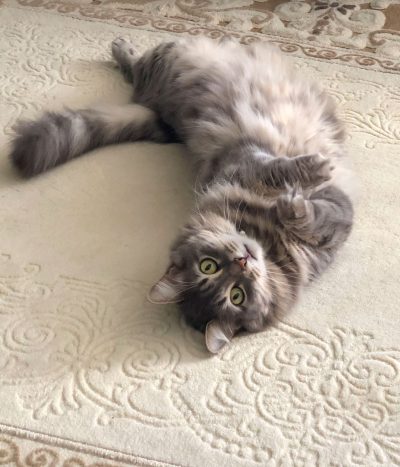 Why is my cat’s tummy so sensitive?
Why is my cat’s tummy so sensitive?
Cats of any age can develop food intolerances. It can start with a simple bout of food poisoning from eating something they shouldn’t have, or a long forming sensitivity to a specific ingredient in their usual diet. Sometimes a cat’s ability to digest certain ingredients can change over time, and this will result in a stressed kitty with an upset tummy.
Food intolerance can be uncomfortable for your cat but it is easily managed once diagnosed. Because it is a digestive issue (not a more serious immune-related condition) food sensitivities can be addressed by adjusting your cat’s diet to one that is more digestible for your specific kitty.
What if more digestible food doesn’t help?
If changing to a more digestible version of your cat’s regular diet is not helping, your cat may have a food allergy. This is a good time to contact your vet to guide you through a proper diagnosis.
Food allergies are different from general food sensitivities as they are an immune response to a specific antigen within your cat’s diet – and it can be rather unsettling (for the both of you) because the antigen could be something your cat has happily been eating for years. Remember, it’s not your fault if your cat is suddenly triggered by something you’ve been feeding them – if you’re here reading this, you have your kitty’s best interests at heart.
What causes food allergies in cats?
Broadly speaking, experts can’t agree on why food allergies may suddenly develop. Most suspect certain proteins or grains, but triggers can be inconsistent. Here’s what we know:
What are the symptoms of an allergic reaction to food?
While food-related allergic reactions can vary from cat to cat, here are a few warning signs of a feline allergic reaction:
An upset tummy – persistent vomiting or diarrhea
Excessive flatulence
Skin irritation – skin becomes itchy and inflamed all over.
Tiny, fluid-filled bumps – may start to appear in the head and neck area
Coat and skin balding – from scratching and excessive grooming
Repetitive coughing, wheezing or sneezing
Loud snoring – usually due to a sore throat
Chronic ear infections
Itchy eyes that appear to be watery
Paws that are swollen from being chewed up
If your cat is exhibiting any or a few of these symptoms, call your vet right away.
If you let the excessive grooming and scratching persist, it could lead to nasty wounds that will invite a bacterial infection. A prolonged food allergy and continuous upset tummy may also lead to reduced appetite and dangerous weight loss.
The symptoms of food allergies aren’t too far from the symptoms some cats experience before the diagnosis of more serious medical conditions; so either way, chat to your vet to keep your kitty safe.
How are food allergies diagnosed in cats?
The diagnosis of your cat’s food allergy is going to require a bit of teamwork. With the guidance of a vet and a steady commitment from your part, your kitty will become the subject of a simple trial.
Essentially, your objective is to identify the specific allergen that’s causing all this upset and then remove any trace of it from your cat’s diet. The ideal way to achieve this is by working with your vet’s advice and following through with a simple but effective food trial at home.
What is a food trial?
A food trial is an effective way to diagnose allergies based on feeding your cat a strict, special diet for a period of 6 to 12 weeks.
If your cat simply has a sensitive tummy or food intolerance, their symptoms will clear around week 4.
Symptoms persisting longer than that will be a good indicator of an actual food allergy. If your cat’s symptoms have primarily been skin-related, you’ll be advised to complete a full 12 week food trial. Skin issues take a little longer to resolve as the skin must regenerate itself and heal wounds.
Trial food diets are clean and simple, containing a few balanced ingredients. These special diets may involve the following:
- Hydrolyzed protein – this simply means that the proteins will be diced so tiny that your kitty’s immune system will be unable to recognize and respond to them.
- Novel protein – as mentioned before, this involves swapping out the usual choice of protein for one your cat has not had before; like duck or venison.
- Home-cooked novel protein – this is the same as above, but lovingly prepared at home to reduce the risk of any outside contamination.
Cats on a food trial must only eat the food prescribed on their trial diet – this is crucial!
It’s your responsibility to be super strict here as it’s the only way to gain accurate trial results. While on the food trial, it is also advised to thoroughly clean surfaces and not leave any human food lying around – if your kitty even licks the baking tray that had your delicious roast chicken in it, an inaccurate trial reading will be the result.
You’ll also have to, unfortunately, hold back on treats and usual chew toys. Literally everything that goes into your kitty’s mouth needs to be trial prescribed.
It takes some serious cat parent diligence, but once you guys are over the trial hill, the purrs of your happy kitty will be worth it. Oh and don’t forget to keep a fresh, clean water source coming – water is fine to pair with a trial diet, and much needed to help replace the fluids lost from an upset tummy.
What happens after the food trial?
If your cat’s symptoms have completely cleared, this is an indication that their issues were diet-related. Now it’s time for the food challenge – which is basically reintroducing your cat to their usual diet.
Should your cat’s symptoms suddenly return within the first week of the food challenge; your cat definitely has a food allergy.
Unfortunately, like most allergies, food allergies can’t be cured but rather better managed.
Together with your vet, you’ll have to do some investigative work on your cat’s food trigger and then avoid it as much as possible.
My cat has a food allergy, what do I do now?
If your cat has been diagnosed with a specific food allergy – you’ll just have to avoid feeding them that. If the trigger is not fully identified, then you’ll be pointed to the hypoallergenic cat food section.
There are tons of wholesome hypoallergenic sensitive stomach cat food options readily available. Their recipes are clean, with limited ingredients, specially designed to avoid common dietary cat allergens (like those previously mentioned). Remember that you’ll have to switch your cat completely over to this diet – so that will include hypoallergenic treats too.
Your vet will be able to point you in the right direction in terms of the best choice for your sensitive little fur-child, and you’ll be well on your way to getting those content kitty cuddles once again.

